Free lancing with Bill
Recap Kosovo
The Kosovo International Poetry Festival
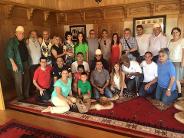
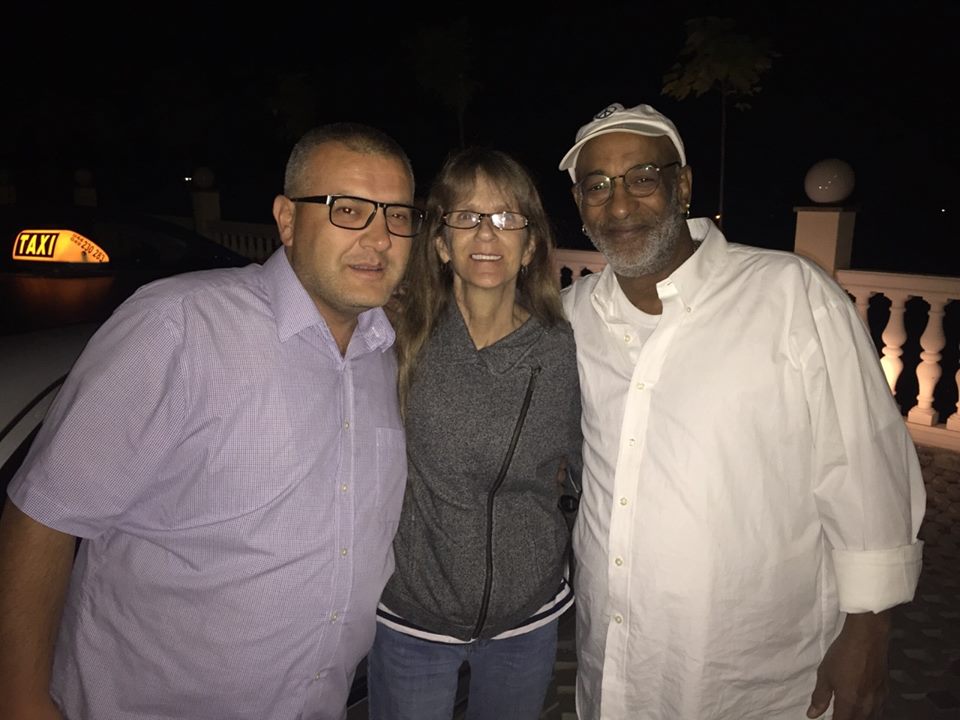
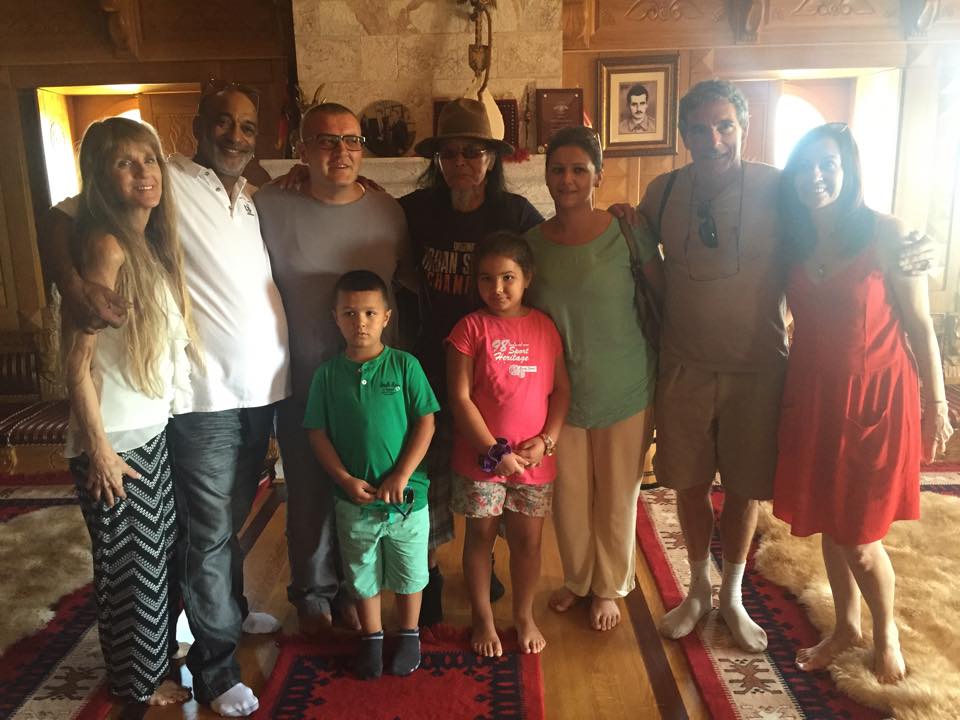
Greetings Family,
I just wish to feed back to you all about the amazing time Janet and i had in the wonderful country of Kosovo. The people of Kosovo and especially the city of Rahovec were so embracing and loving in all ways. As representatives of Inner Child, Poetry and the United States of America, there were no gestures of a most gracious hospitality left undone. Mr. Fahredin Shehu, my Brothers Visar Korenica and Qazim Cana aka Doc were without question some of the most wonderful human beings i have encountered in my 64 years of life. The entire affair was stellar in all ways. We were embraced in fellowship, brotherhood and love wherever we travelled, whether it was the Waiters and Owners of the various restaurants, The Keepers of the Shrines, People’s Homes, the Hotels and their Staff or the Vineyards. There will always be a special place in our heart. for the Esra Palace Hotel and Restaurant, the place we called home for the last seven days. I could go on and on about the wonderful time we had. I wish also to acknowledge and thank the Deputy Minister of Culture for his loving embrace of us as Americans and as Poets.
I had the honor of showcasing my book, The Vine Keeper at the affair and it was such an humbling experience to be selected from a field of World Class Poets to do so. There were Poets representing their countries from all over the globe. We made some very wonderful bonds of friendship and family with our fellow Poets. I also was very humbled to be named the Inaugural Poet Laureate of the Kosovo International Poetry Festival, where i was awarded the very first Golden Grape Award. Janet and i will cherish these moments in our lives for as long as we shall live. Though i did not attend the festival to compete in any manner, i am truly, truly humbled in more ways than i can even begin to imagine.
Again, i lovingly thank all who have supported this effort with their prayers, well wishes and donations. I cannot even begin to repay you for your kindness.
Bless Up
Bill
inner child, ltd.
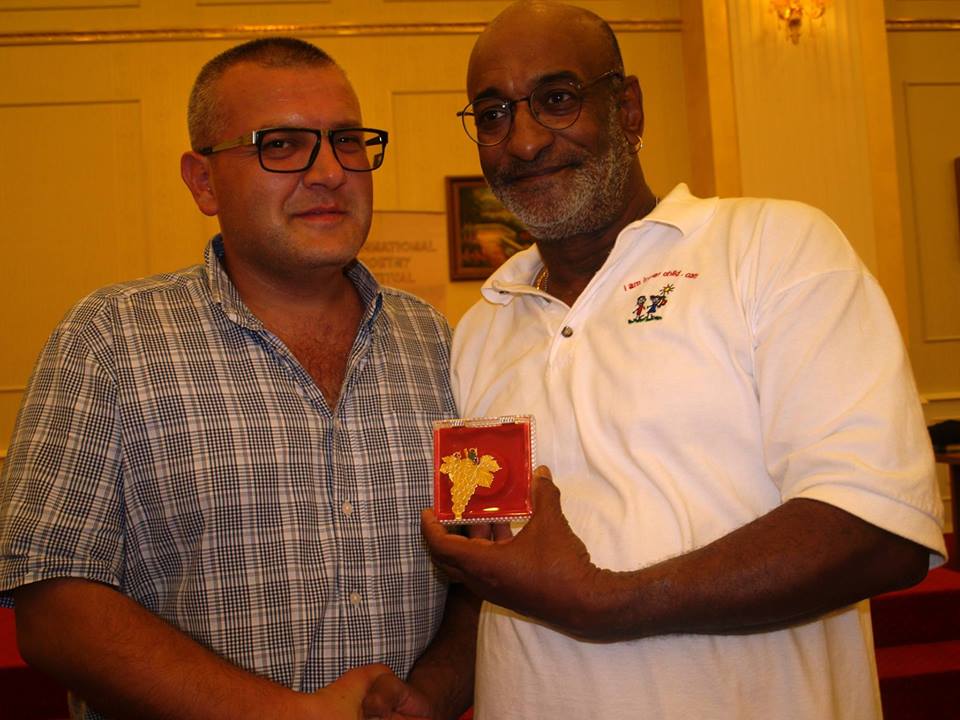
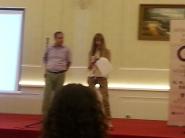
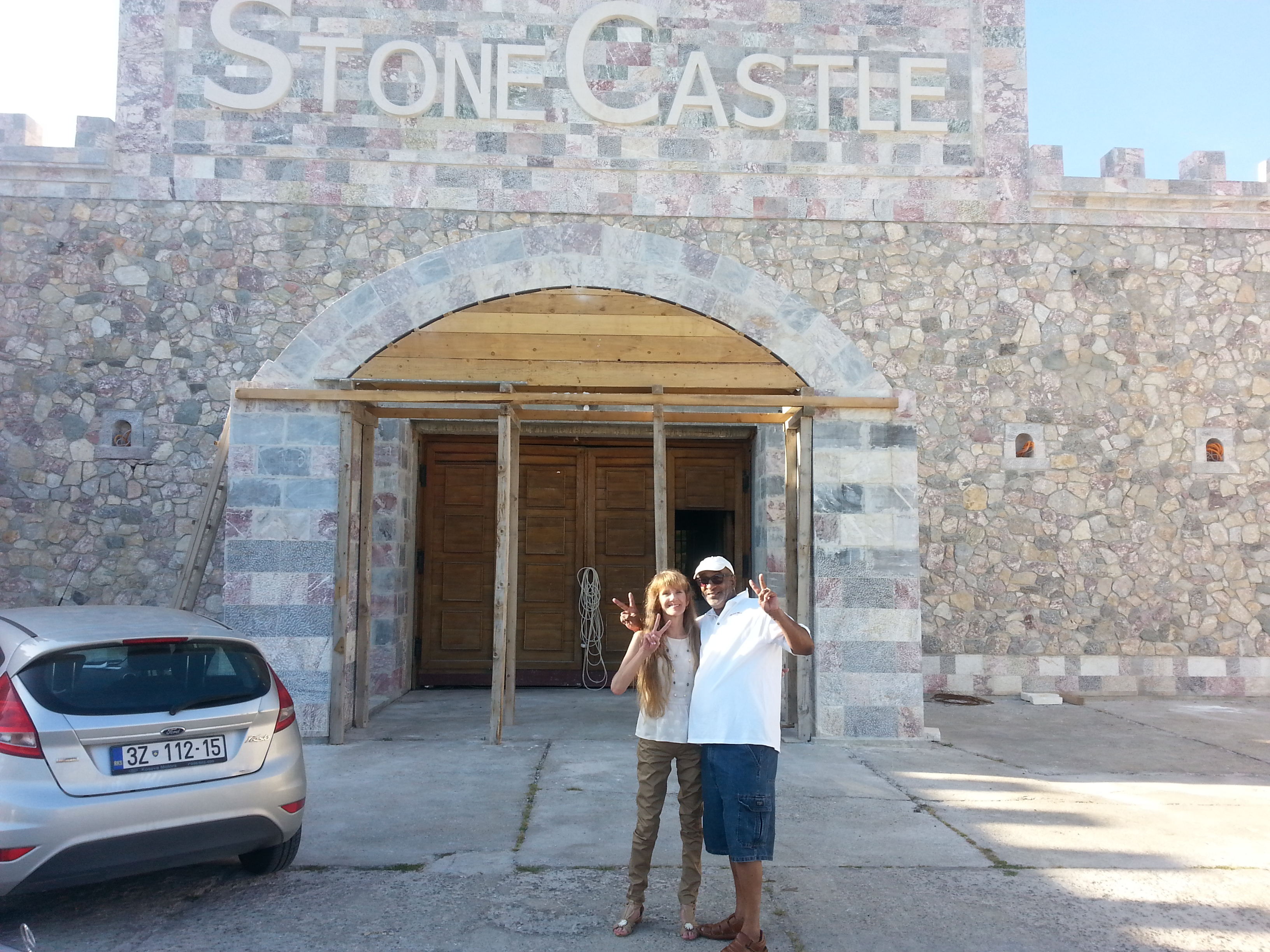
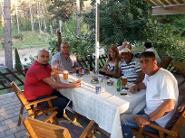

i Offered Thanks
I awakened this morning, and i offered a prayer of gratitude to the Progenitor of my life, . . . my God.
There are many things to be thankful for. They can be found in the Good and that which is perceived as Evil, the Light and the Dark.
I offered thanks for all the Woe in my life, for through it i learned that i had the gift of Endurance and Temperance.
I offered thanks for all those who have left my life through Death, Moving Away, Growing Up and the ending of Relationships, for it has taught me to appreciate those who are in my life NOW, as well as how to truly cherish the memories of the blessings of their presence i once enjoyed.
I offered thanks for all the Dark Days ... yes, for the dark days brought to me an understanding of how i could truly employ, not only the light of those found in the not so dark days, but how to utilize to the best of my own abilities, and that small light of my own that resides within me.
I offered thanks for all the Anger i suffered through . . . that of my own and that of others. Through my anger i have come to know the true meaning of humility. This gift was imparted to me in being chastised and scolded by others, and in having to be the one who must later apologize for their errancies of character, attitude and expression.
I offered thanks for all the times when i was down on my luck. It was, and is those times i realize that luck and being down, was my own choosing, and that i had the power to alter my perspectives of how i viewed my life. Should i go forth with disdain for the hand that life has dealt me or should i cling to such powerful forces of hope and faith? These powers do have a transformative ability to change my energy to something magnificent and grand.
I offered thanks for all the Tears i have cried . . . for whatever reasons. Tears truly have a deep cleansing ability to alleviate my soul of the angst i have collected through many of life’s circumstances.
I offered thanks for all the “NOs” i have heard, given me by life when i so wanted to hear a “Yes”. Yes, in reflection, many times those “Yes’s” i wished for would have been detrimental to my higher good. I did not always understand this, nor did i care at that moment, for i was blinded by my own “Self Oriented” desires and my finite and limited perspectives on the whole of what may “Be” or “Become”. I have grown tremendously because of each and every one of those ”NOs” . . . and again i must say . . . I am Thankful.
As you read this, you may say to your self, to be thankful is a good thing . . .or not. But to be thankful, i have found to be personally empowering on so many “Life Levels”. It has added unto my abilities to make it through many other circumstances i could not have navigated early on in my life. It was all the setbacks that taught me how to garner my fortitude to press on. It is all those disappointments that taught me Tolerance, Acceptance and Patience. It has taught me some wonderful things about my own abilities.
This does not mean that i did not want things . . . i did, and i do! This does not mean i gave up on life . . . NO . . i live to the fullest i can . . .when i remember who i am and have the mind-set to do so. Simply put, through the Storms “Life” has so mercifully sent my way, i have come realize a greater expanse of my own abilities. I have come to know the meaning of peace found in the “Eye of the Storm”. I have discovered that i am so much more than i believed and so much more than what i have been Taught and Told . . . as are you!
The biggest and most profound aspect of my existence i have come to reckon with is that there is a Power we have . . . yes “WE”, that is connected to some force we have yet to fully comprehend. Most of us about this wonderful plane of existence identify this as God. Whether you are a believer or not, matters not much, for even Science cannot deny this immeasurable force that connects us all to a “One” reality, whether we identify it as Evolution or Creation. They are but words, as are these! But, what is real in this seemingly temporal existence of ours is what we feel. I pray that you take the time to ”feel” the goodness of who you are and teach and show others through your example as well to embrace, not just their possibilities of what they may become, but the grand aspects of what we already ARE . . . Right Now . . . Right Here !
Finally, I offered thanks for all the Love i have had in my life and that which still resides, which is “ALL LOVE”. The love that appears to have went away, left the Gift of Experience and thus a Lesson or two behind. And, funny thing, these lessons are still mine, the Lesson and the Love. The Love i have today . . . it is filled with possibilities of what it may become. Who can contain such energy with a closed hand or closed heart . . . . None !!!! Love seems to be that Universal Language that is now awakening and calling to all Souls to “Allow” the opening of our Heart’s Door . . . Do you hear the knocking ?
I have offered thanks this day for you. I Awakened this Morning . . .
Thank You
bill
Introducing
Dr. hülya n. yılmaz
(Ph.D., Humanities)
A FIRE TO IGNITE
“The mind is not a vessel to be filled but a fire to be ignited.”
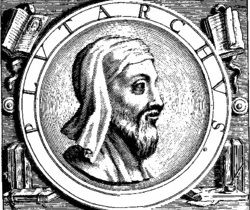
RECONCEPTUALIZING EDUCATION
Are we to conclude from the Plutarch statement above, the Greek academic, historian, biographer, and essayist merely referred to learning for the sake of his pupils regurgitating information he delivered to them? Note his emphasis on what the mind is not. With urgency, then, a question rises: How does one provide the flame?
Written history demonstrates time and again to what extent the humankind relies on the knowledge and wisdom of its ancestors. When the subject is as challenging of a matter to a century as education is to ours, we need the access to specific branches of those historical libraries. Hence, the reappearance in this article of a most prominent educational philosopher scholarship has explored: Plutarch of Chaeronea.
To begin with, for me to speak through Plutarch in the present format has everything to do with his documented influence on the evolution of the essay genre. His more than 60 essays of ethical, religious, physical, political and literary contents out of his total 227 works are claimed to have had a strongest impact on his contemporaries but especially on the ensuing generations.
There is a multitude of related areas we can explore, or we can delve into as many details as we could draw from available sources. The fact will remain that all data are incomplete. For, what is known about Plutarch’s life constitutes a reconstruction work. Therefore, we will focus on my point of concern: education as conceptualized outside the term’s modern-day boundaries.
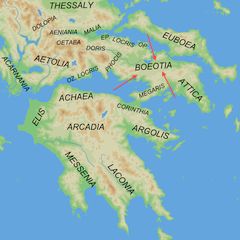
ANCIENT GREECE :
PLUTARCH AND HIS ACADEMIC PHILOSOPHY
1. Early Life, Schooling and Family
Plutarch’s birth year is given as AD 46. Regards the time when his death occurred, sources dwell on a date after 119. He is believed to have been born to a prominent family in Chaeronea in Boeotia, Greece (arrow-highlighted in the first picture above) and his immediate family (parents, two brothers and a grandfather) as well as extended relations are described as happy and close-knit people. He is recorded as having received a liberal education at the Academy of Athens, studying physics, rhetoric, mathematics, medicine, natural science, philosophy, Greek, and Latin literature. In his effort to bring his education to completion, Plutarch is said to have traveled extensively in Greece and Asia Minor, with visits to Alexandria, Egypt as well (bio.).
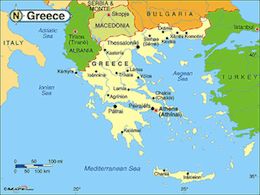
There is not much information about this educational philosopher’s wife, other than her name –Timoxena, and her father’s name. While the dates are a blur, one wonders, if it weren’t the deaths of many of his children that prompted Plutarch to his deliberations on theosophy: out of the four sons and one daughter only two sons survived him and his wife. His letter of consolation to Timoxena is most poignant in its mediation to scholars of this prominent world figure’s life-altering events (see cited work section for a link to the entire letter in translation):
AS [sic] for the messenger you dispatched to tell me of the death of my little daughter, it seems he missed his way as he was going to Athens. But when I came to Tanagra, I heard of it by my niece. I suppose by this time the funeral is over. I wish that whatever has been done may create you no dissatisfaction, as well now as hereafter. But if you have designedly left anything alone, depending upon my judgment, thinking better to determine the point if I were with you, I pray let it be without ceremony and timorous superstition, which I know are far from you.
Only dear wife, let you and me bear our affliction with patience. I know very well and do comprehend what loss we have had; but if I should find you grieve beyond measure, this would trouble me more than the thing itself. For I had my birth neither from a stock nor a stone; and you know it full well, I having been assistant to you in the education of so many children, which we brought up at home under our own care. This daughter was born after four sons, when you were longing to bear a daughter, which made me call her by your own name. Therefore I know she was particularly dear to you. […] (Plutarch Letter).
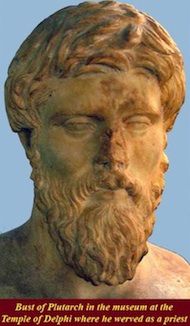
1. Work
Plutarch’s life was marked with his commitment to education. He is known to have taught in Chaeronea, also lecturing in Rome as well as in other parts of Italy on philosophy and ethics (Stanford Encyclopedia of Philosophy). His Moralia, a collection of his lectures, letters and dialogues offers the reader his treatments of an array of subjects, one of which has my concentrated attention in this essay: Academic philosophy.
It is no irony that a saying, “[c]haracter is destiny[,]” originates from Plutarch – foremost a moralist striving to illustrate the influence of character on destinies of individuals and state. His measurement of character entails conducts in war, in politics, and in love. This key concept of designing the human character stands in direct relation to the discussion at hand. In his ethical prescription for life, Plutarch pronounces the following lesson for his pupils:
There must be a concurrence of three things to produce perfectly right action: nature, reason and habit (PL MOR 1 P9. Ancient/Classical History).
The “habit” to which he refers, reveals the emphasis he places on education’s role in bettering a human being: “Character is habit long continued (PL MOR 1 P13).” His following claim sheds a brighter light on this thought:
So that we might acquire a habit of mind that is deeply trained and philosophic, rather than the sophistic that merely acquires information, let us believe that right listening is the beginning of right living (PL MOR 1 P259).
Where does reason, the third element of Plutarch’s character-building system, then, come into play? He answers as in the following:
When the intelligence of the new student has comprehended the main parts, let us urge him to put the rest together by his own efforts, using his memory as a guide and thinking for himself. The mind does not require filling like a bottle (PL MOR 1 P257).
Any statement he makes in Moralia accentuates his central idea behind the role of education for humanity:
While we take pains that children should eat with the right hand, we take no pains that they should hear the right instruction (PL MOR 1 P23).
The “right instruction” for Plutarch entails character building in his students – candidates for future statesmen. Hence, he fine combs through the conditions of their treatment throughout their learning process:
Children ought to be led to honourable [sic] practices by means of encouragement and reasoning and certainly not by blows or ill treatment (PL MOR 1 P41).
That precise preparation of the circumstances will result in, as he asserts with conviction, the desired makings of history:
Dull minds are content to learn the outcome, or general drift of history. The student fired with love of noble conduct and the works of virtue sees much chance in outcomes and is more delighted with the particulars of history where actions and their causes detail the strugglesbetween virtue and vice (PL MOR 7. P373).
In another section of his Moralia, once again, Plutarch lays dramatic emphasis on what education should not be about – simultaneously, underlining a serious dilemma of our times:
Children must be given some breathing space from continuous tasks; the whole of life is divided between relaxation and application. Rest gives relish to labour [sic] (PL MOR 1 P43).
‘Love for noble labor and the works of virtue’: two vital ingredients today’s educational systems lack at large.
2. Treatise on Poetry, History and Education
For Plutarch, poetry and history constitute the integral elements of Academic philosophy. Poetry and education, then, in the view of this ‘humanist par excellence’ (Encyclopedia Britannica), complement one another:
The Spartan, when asked what he taught, replied: I make honourable [sic] things pleasant to children (PL MOR 6. P9).
This way is the one to help pupils take through their learning toward Plutarch’s ultimate aim and accordingly, carries heavy responsibility in their own improvement of their character:
The memory of children should be trained and exercised; it is the storehouse of learning and the mother of the Muses (PL MOR 1 P45).
Young pupils, Plutarch believes, must be given training in reading poetry, though beyond the metaphorical in order to realize this art will impact character formation and development in the matter people desperately need it later in their lives:
Let poetry be used as an introductory exercise to philosophy. Those who train themselves to seek the profitable in what gives pleasure and to be dissatisfied with what has nothing profitable in it learn discernment, the beginning of education (PL MOR 1 P81).
When pupils “pass from ostentation and artifice to discourse which deals with character and feeling[,]” proclaims Plutarch, “they begin to make progress (PL MOR 1 P421).” By becoming aware on the basis of poetry’s selected principles of their own capability to achieve a higher form of themselves, they will then be able to advance upon a state of being where they can materialize those principles, from which point to enter the path to virtue. Once they achieved that state of being they have attained by themselves, he asserts further, they can contribute to the improvement of others:
Menedemus remarked that: the multitudes who came to Athens to study were at the outset wise; later they became lovers of wisdom; later still orators, and as time went on, just ordinary persons and the more they laid hold on reason the more they laid aside their self opinion and conceit (PL MOR 1 P435).
In the statement above, we see once again the essence of Plutarch’s principle regarding the need for the concurrence of nature, habit and reason in order for the education of character to be achieved. Hence, the interrelated components of the concept behind philosophical education: poetry and history as the two irreplaceable cores of the same element that fine-tunes character. How befitting is the following Plutarch statement, when his ideal of training statesmen from their childhood on is taken into consideration:
We should choose a calling appropriate to ourselves, cultivate it diligently and let the rest alone (PL MOR 6. P215).
And how succinct is his definition of the correctly educated statesman:
Arouse a man to emulate his better self (PL MOR 1 P383).
3. Influence
As stressed at the onset of this article, Plutarch, a phenomenon of human history prompted the development and advancement of essay writing and essayist texts. Far beyond such influence, however, he also left his impact on the emergence of the genres of biography and historical writing (Encyclopedia Britannica). His academic and philosophical presence in Europe is said to have stayed at its peak from the 16th through the 19th century the least.
His literary impact on following generations of authors has been immense: Sir Philip Sidney, Edmund Spenser, Ben Jonson, William Shakespeare, John Dryden, John Milton, Robert Herrick, George Chapman, Jonathan Swift, Walter Savage Landor, William Wordsworth, Robert Browning, Mary Shelley, and H.G. Wells in England; Ralph Waldo Emerson and Herman Melville in the United States; J.W. von Goethe and Friedrich von Schiller in Germany; and French drama of the late 16th and the entire 17th century; Jacques Myot’s introduction of Plutarch to Sir Thomas North, and Shakespeare’s three plays sourced by Sir Thomas North's English translation of Lives and from then on, the entire English-speaking regions of the world (Stanford Encyclopedia of Philosophy).
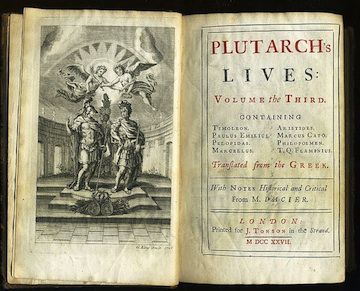
When compared to other Ancient Greek philosophers, Plutarch is not viewed as a profound figure in the field of philosophy. While he may not have added a new component to the arena of philosophy at large, scholars assert that he was instrumental in enabling his students and the public to comprehend the established systems – and not only in Greece but wherever he traveled. I join many critics who see in him ‘a humanist par excellence’ – and therefore justify the extensive space I reserve in my essay on the discussion of his relevant accomplishments as an educator serving humanity.
GILBERT KEITH CHESTERTON AND PLUTARCH’S ACADEMIC PHILOSOPHY
Education to deliver service to humanity is not a theory limited to Ancient Greece. There are men renowned for their high intelligence but also those lesser known who with persistent passion stood behind their conclusions as to what education is not supposed to be. In the following, a discussion ensues on an intellectual of modern times whose educational philosophy has been largely overlooked in modern ages: Gilbert Keith Chesterton (1874-1936).
1. Life and Work: Selected Facts
Gilbert Keith Chesterton – one of the most unnoticed thinkers of the 20th century, the English biographer, philosopher, writer, poet and literary and art critic has lived in the United Kingdom all his life. He is known never to have gone to college but to art school instead.
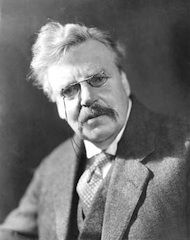
Dale Ahlquist has the following relatively unknown life and work details to report on Chesterton in an article in The American Chesterton Society:
In 1900, he was asked to contribute a few magazine articles on art criticism, and went on to become one of the most prolific writers of all time. He wrote a hundred books, contributions to 200 more, hundreds of poems, including the epic Ballad of the White Horse, five plays, five novels, and some two hundred short stories, including a popular series featuring the priest-detective, Father Brown. In spite of his literary accomplishments, he considered himself primarily a journalist. He wrote over 4000 newspaper essays, including 30 years worth of weekly columns for the Illustrated London News, and 13 years of weekly columns for the Daily News. He also edited his own newspaper, G.K.’s Weekly.
Ahlquist also writes about the ease within which Chesterton expressed himself regarding literary and social criticism, history, politics, economics, philosophy, and theology and how this laid-back philosopher “debated many of the celebrated intellectuals of his time: George Bernard Shaw, H.G. Wells, Bertrand Russell, Clarence Darrow.” In an obvious tone of disappointment, Ahlquist adds to say how “the world has immortalized his opponents and forgotten Chesterton,” while, “i]ronically, all of his opponents regarded Chesterton with the greatest affection.” According to Ahlquist’s account, George Bernard Shaw said that “[t]he world is not thankful enough for Chesterton.”
It is long overdue for the world to become thankful for Chesterton’s conceptualization of education, as I argue.
2. “The Superstition of School”
A significant Chesterton statement resonates the essence of Plutarch’s vision of Academic philosophy, and therefore he is in most appropriate company in this essay:
Education is simply the soul of a society as it passes from one generation to another.
Let us not forget the variety of topics Chesterton has covered in his essays of encyclopedic extent, hence how this particular claim by him is not to understand in isolation but rather in close connection to his sociological as well as political contexts – as in the proposed system to the ‘training of a statesman’ by Plutarch.
In his essay, “The Superstition of School,” Chesterton claims with conviction that "without a gentle contempt for education, no gentleman's education is complete (Classic Essays)." What he demonstrates, when he writes about “the snags of sociology,” is of critical value:
[O]ne of them is concerned with Education. If you ask me whether I think the populace, especially the poor, should be recognized as citizens who can rule the state, I answer in a voice of thunder, "Yes." If you ask me whether I think they ought to have education, in the sense of a wide culture and familiarity with the classics of history, I again answer, "Yes." But there is, in the achievement of this purpose, a sort of snag or recoil that can only be discovered by experience and does not appear in print at all. It is not allowed for on paper, even so much as is the recoil of a gun. Yet it is at this moment an exceedingly practical part of practical politics[.] […]
As if to describe our times, he further analyzes the problematic at hand:
The snag in it is this: that the self-educated think far too much of education. I might add that the half-educated always think everything of education. That is not a fact that appears on the surface of the social plan or ideal; it is the sort of thing that can only be discovered by experience. When I said that I wanted the popular feeling to find political expression, I meant the actual and autochthonous popular feeling as it can be found in third-class carriages and bean-feasts and bank-holiday crowds; and especially, of course (for the earnest social seeker after truth), in public-houses. I thought, and I still think, that these people are right on a vast number of things on which the fashionable leaders are wrong. The snag is that when one of these people begins to "improve himself" it is exactly at that moment that I begin to doubt whether it is an improvement.
How in sync do the Chesterton words flow on and on, when one recalls Plutarch’s concern over the ‘improvement of a character’:
He seems to me to collect with remarkable rapidity a number of superstitions, of which the most blind and benighted is what may be called the Superstition of School. He regards School, not as a normal social institution to be fitted in to other social institutions, like Home and Church and State; but as some sort of entirely supernormal and miraculous moral factory, in which perfect men and women are made by magic. To this idolatry of School he is ready to sacrifice Home and History and Humanity, with all its instincts and possibilities, at a moment's notice. To this idol he will make any sacrifice, especially human sacrifice. And at the back of the mind, especially of the best men of this sort, there is almost always one of two variants of the same concentrated conception: either "If I had not been to School I should not be the great man I am now," or else "If I had been to school I should be even greater than I am." Let none say that I am scoffing at uneducated people; it is not their uneducation [sic] but their education that I scoff at. Let none mistake this for a sneer at the half-educated; what I dislike is the educated half. But I dislike it, not because I dislike education, but because, given the modern philosophy or absence of philosophy, education is turned against itself, destroying that very sense of variety and proportion which [sic] it is the object of education to give.
Chesterton delivers the solution to the problem of his diagnosis in no less succinct terms:
What is wrong is a neglect of principle; and the principle is that without a gentle contempt for education, no gentleman's education is complete. […] the truth of which I speak has nothing to do with any special culture of any special class. […] The moment men begin to care more for education than for religion they begin to care more for ambition than for education. It is no longer a world in which the souls of all are equal before heaven, but a world in which the mind of each is bent on achieving unequal advantage over the other. There begins to be a mere vanity in being educated whether it be self-educated or merely state-educated. Education ought to be a searchlight given to a man to explore everything, but very specially the things most distant from himself. Education tends to be a spotlight; which is centered entirely on himself [sic]. Some improvement may be made by turning equally vivid and perhaps vulgar spotlights upon a large number of other people as well. But the only final cure is to turn off the limelight and let him realize the stars. (1923)
It is not at all difficult to recall at this point as to how the same thought found its home in Ancient Greece in the writings and teachings of Plutarch:
When the intelligence of the new student has comprehended the main parts, let us urge him to put the rest together by his own efforts, using his memory as a guide and thinking for himself. The mind does not require filling like a bottle (PL MOR 1 P257).
As with Chesterton, the sole genius of the 21st century, Albert Einstein was – though quite under-examined for this aspect of his intelligence – a devoted advocate for education as a “searchlight (Chesterton).”

EDUCATION AND THE 21ST CENTURY
1. Albert Einstein (1879-1955)
Einstein’s life and work have been and continue to be objects of concentrated interest to the extent that I prefer to bring to attention some lesser-known facts surrounding the genius about the subject matter. And I will only tend to them through Einstein’s own words – or, as they are commonly attributed to him. The first one of my selection reflects Plutarch’s analysis of Academic philosophy to the core: “Education is not the learning of facts, but the training of the mind to think (“On Education”).” Imagine a speech of this nature meeting a university graduation ceremony in our times. But there is more: “Education is what remains after one has forgotten what one has learned in school.” How about his frequently cited pronouncement: “The only thing that interferes with my learning is my education (“On Education”)”?
In his above-mentioned State University of New York at Albany commencement address, “on the occasion of the celebration of the tercentenary of higher education in America,” Einstein has much more to articulate on the topic of traditional learning impositions forced on students. Only selected excerpts of highest relevance appear here:
Sometimes one sees in the school simply the instrument for transferring a certain maximum quantity of knowledge to the growing generation. But that’s not right. Knowledge is dead; the school, however, serves the living. It should develop in the young individuals those equalities and capabilities which are of value for the welfare of the commonwealth. But that does not mean that individuality should be destroyed and the individual becomes a mere tool of the community, like a bee or an ant. For a community of standardized individuals without personal originality and personal aims would be a poor community without possibilities for development. On the contrary, the aim must be the training of independently thinking and acting individuals, who, however, see in the service of the community their highest life problem (“On Education”).
At this intersection, I would like to reiterate my earlier contemplation on the two essential elements that our times lack in full, a conclusion I had reached through my readings of Plutarch: ‘Love for noble labor and the works of virtue.’ What Einstein illustrates in the latter part of his speech lays the importance on the same values: “[T]he school and the teacher must guard against employing the easy method of creating individual ambition, in order to induce the pupils to diligent work (“On Education”).” That this task is anything but easy, Einstein recognizes and helps others to acknowledge by getting deeper into the issue at hand:
[O]ne should guard against preaching to the young man success in the customary sense as the aim of life. For a successful man is he who receives a great deal from his fellow men, usually incomparably more than corresponds to his service to them. The value of a man, however, should be seen in what he gives and not what he is able to receive.
The most important motive for work in the school and in life is pleasure in work, pleasure in its results, and the knowledge of the value of the result to the community. In the awakening and strengthening of the psychological forces in the young man, I see the most important task given by the school. Such a psychological foundation alone leads to a joyous desire for the highest possessions of men, knowledge and artist-like workmanship (“On Education”).
The seemingly simple yet demanding challenge in teaching for the future of humanity must be understood outside time and space but also against the backlash of teaching aims to deliver ‘special knowledge’:
I want to oppose the idea that the school has to teach directly that special knowledge and those accomplishments which [sic] one has to use later directly in life. The demands of life are much too manifold to let such a specialized training in school appear possible. Apart from that, it seems to me, moreover, objectionable to treat the individual like a dead tool. The school should always have as its aim that the young man leaves it as a harmonious personality, not as a specialist.
In his conceptualization of education, Einstein joins hands with Plutarch and Chesterton, as he also demands from the field a “searchlight” (Chesterton) to be offered to the learners in a delicate balance between their own space and the opportunity to alter themselves into their improved selves:
The development of general ability for independent thinking and judgment should always be placed foremost, not the acquisition of special knowledge. If a person masters the fundamentals of his subject and has learned to think and work independently, he will surely find his way and besides will better be able to adapt himself to progress and changes than the person whose training principally consists in the acquiring the detailed knowledge.
Giving students the chance to advance upon their own character is a concept that also Sydney Justin Harris – a far less-known figure of human history explored and articulated with fierce passion.
2. Sydney Justin Harris (1917-1986)
Sydney Justin Harris was born in London, England on September 14, 1917. The Harris family is known to have moved to the United States, when he was five and having settled permanently in Chicago around 1922. Harris was attending the University of Chicago as a philosophy student, when he started his newspaper career at the Chicago Herald-Examiner. Like Chesterton’s service as the editor of his own weekly publication, Harris also was in editorial charge, only of his own magazine The Beacon. Other similarities between Chesterton’s and Harris’ professional lives include Harris’ active involvement in drama critiques. He soon became a reporter and feature writer for the Chicago Daily News. For 40 years, beginning with 1944, he published "Strictly Personal," his daily column in which he married his background in philosophy to his research in the form of essays on a large variety of issues related to the contemporary world, including “human behavior, religion, hypocrisy, and artistic endeavor” and delving into areas of high controversy of his time, such as “supporting abortion, prison reform, and a less literal interpretation of the bible (Newberry.org.).” Next to his journalistic and literary critique work, Harris delivered lectures – another area of life experience bridging him to Plutarch, the perhaps most important connectors being his philosophy studies, commitment to the essay genre and groundbreaking thoughts on education.
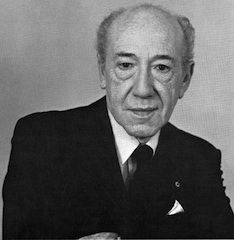
For the context of this article, Harris- 1994 essay, “What True Education Should Do” has critical importance and I will therefore include it here in its full length. In his critique, Harris is citing the Greek philosopher, Socrates (c. 470 BCE – c. 399 BCE) – the core influence on Western thought – whose teachings Plutarch includes in his Moralia as well as in his treatises in apparent support:
When most people think of the word education, they think of a pupil as a sort of animate sausage casing. Into this empty casing, the teachers are supposed to stuff education. But genuine education, as Socrates knew more than two thousand years ago, is not inserting the stuffings of information into a person, but rather eliciting knowledge from him; it is the drawing out of what is in the mind.
“The most important part of education,” once wrote William Ernest Hocking, the distinguished Harvard philosopher, “is this instruction of man in what he has inside of him.”
And, as Edith Hamilton has reminded us, Socrates never said, “I know, learn from me.” He said, rather, “Look into your own selves and find the spark of truth that God has put into every heart and that only you can kindle to a flame.”
In the dialogue called the “Meno,” Socrates takes an ignorant slave boy, without a day of schooling, and proves to the amazed observers that the boy really “knows” geometry—because the principles and axioms of geometry are already in his mind, waiting to be called out.
So many of the discussions and controversies about the content of education are futile and inconclusive because they are concerned with what should “go into” the student rather than with what should be taken out, and how this can best be done.
The college student who once said to me, after a lecture, “I spend so much time studying that I don't have a chance to learn anything” was succinctly expressing his dissatisfaction with the sausage-casing view of education.
He was being so stuffed with miscellaneous facts, with such an indigestible mass of material, that he had no time (and was given no encouragement) to draw on his own resources, to use his own mind for analyzing and synthesizing and evaluation this material.
Education, to have any meaning beyond the purpose of creating well-informed dunces, must elicit from the pupil what is latent in every human being the rules of reason, the inner knowledge of what is proper for men to be and do, the ability to sift evidence and come to conclusions that can generally be agreed to by all open minds and warm hearts.
Pupils are more like oysters than sausages. The job of teaching is not to stuff them and then seal them up, but to help them open and reveal the riches within. There are pearls in each of us, if only we knew how to cultivate them with ardor and persistence (The Thoughtful Reader).
That Harris had seen the necessity of lighting the fire for learning is evident in the following quote attributed to him; one echoing the Academic philosophy of Plutarch’s Ancient Greece:
The whole purpose of education is to turn mirrors into windows. To enable a young individual with learning that would transcend the mere reception of knowledge, transforming it into a life experience to give others in the form of one’s improved character, while embracing thus empowering all involved in that exchange, was a life objective of the human ideal called Nelson Mandela.
3. Nelson Mandela (1918-2013)
As with Einstein, the life and works of this world leader of global peace and harmony are also surrounded by studies to such broad and comprehensive scope that I see no need to revisit those areas within the context of my essay. In fact, Mandela is known beyond any significant gaps of information that a collection of his statements on education will suffice to help us remember his intelligence and timeless vitality on global scale.
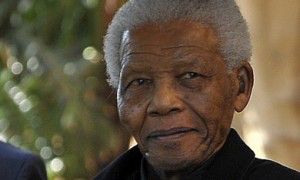
With his assertion that twins with Plutarch’s, the following Mandela announcement needs no interpretation:
There can be no keener revelation of a society’s soul than the way in which it treats its children (Valerie Strauss, “Nelson Mandela on the power of education” in: The Washington Post).
Centering his thought around the future of humanity – children yet once again, the human perfection declares his lesson. And it is impossible to disregard his uniting reference to children at large, not as members of any particular cultural group but rather all within one empowering embrace (“our children”):
The power of education extends beyond the development of skills we need for economic success. It can contribute to nation building and reconciliation. Our previous system emphasized the physical and other differences of South Africans with devastating effects. We are steadily but surely introducing education that enables our children to exploit their similarities and common goals, while appreciating the strength in their diversity (Strauss, “Nelson Mandela”).
As were he to be strolling down the Agora with philosophers of Ancient Greece – with the likes of Socrates or Plutarch, Mandela delivers his own lecture on poetry’s impact on character:
A good head and good heart are always a formidable combination. But when you add to that a literate tongue or pen, then you have something very special (Strauss, “Nelson Mandela”).
Mandela leads us to realize that matters of humanity haven’t much changed since the period of Ancient Greece, since 19th or 20th century-Europe, or in the 21st century:
No one is born hating another person because of the color of his skin, or his background, or his religion. People must learn to hate, and if they can learn to hate, they can be taught to love, for love comes more naturally to the human heart than its opposite (Strauss, “Nelson Mandela”).
‘Love for noble labor and the works of virtue,’ are lines from Plutarch I repeated in this essay twice before. With Mandela’s thought of “love” we are only nearer to a better understanding of the ancient teaching aim. This human perfection declares it as a life value to be taught.
The concept of education as I have outlined in this essay, assigns educators the responsibility of helping students lead a richer and fuller life and developing their mental and spiritual qualities to the ultimate. But in the face of such conclusion, we must bear in mind all along what the referent itself, “education,” does not entail. Or, how fluid the boundaries are in the role distribution between an “educator” and a “student.” Isn’t the entire dynamics, rather, all about who first attains the higher level of consciousness in order to begin to enable the other to recognize humans’ interdependency to one another?
One is urged at this point to consider what the future of education may hold for the future of humanity. Two possibilities emerge as objects for potential deliberations, none as subjects of first-time introduction: an educational theory embedded in the shores of non-revolutionary lands and another one housing on the marginal isles of meditative trainings. The discussion in this final stage of the paper will be – as inherent in its purpose – more speculative than open for scientific affirmation, especially when immediacy were to be of demand.
THE FUTURE OF EDUCATION: A SEMI-STRUCTURED SPECULATION
1. Self-Determination Theory
The “theory of motivation,” known in the field of education as SDT has specific areas of concentration that can be summarized as in the following compact overview:
It is concerned with supporting our natural or intrinsic tendencies to behave in effective and healthy ways. SDT has been researched and practiced by a network of researchers around the world. The theory was initially developed by Edward L. Deci and Richard M. Ryan, and has been elaborated and refined by scholars from many countries. Deci is currently a professor in the Department of Clinical and Social Sciences in Psychology at the University of Rochester, in Rochester NY, USA; Ryan, a clinical psychologist, and was recently appointed as Professor at the Institute for Positive Psychology and Education at the Australian Catholic University in Sydney, Australia. Together and separately Deci and Ryan have promoted SDT through theory, research and their ongoing training of scholars (www.selfdeterminationtheory.org).
Non-theorist teachers of our century are known to have experimented with SDT at different levels of schooling in order to “kindle the gift of life" in their students, as Dr. Timothy A. Pychyl, professor of psychology at Carleton University reflects in his blog entry, “Education Is Not the Filling of a Pail, But the Lighting of a Fire.” Bringing the field-specific terminology to our times, Dr. Pychyl discusses SDT as the “fire triangle of motivation” on the basis of the theory established by Richard Ryan and Edward Deci:
Their theory is based on three fundamental human needs: competence, autonomy and relatedness. Their science (and there has been lots of it) has demonstrated how each need or component contributes to motivation. The art is in addressing each component as part of the curriculum and regulating them in the students' environment to maximize interest and approach behaviors (Pychyl).
Pychyl has his own SDT-adjusted approach, adopted from Wilbert J. McKeachie, retired professor of psychology, for which he assumes “autonomy and relatedness together […] as an overall ‘Will’ component,” while he takes “competence as a ‘Skill’ component.” He arrives at the conclusion that the educator needs both constituents “to light a fire for learning.”
Professionals in the field will find a refreshingly different angle in Timothy A. Pychyl’s commentary: his belief that the “Will&Skill” attainment is not “simply the students' responsibility,” as largely expected by the teachers. When students “lack the will for learning,” he deliberates, they won’t “come into the classroom on fire for learning.” At the same token, when they “lack skills,” they won’t “think they can succeed at a task” and therefore, “won't feel very motivated to try.”
While in his reflections Dr. Pychyl doesn’t delve at all (not a goal for him) into the Academic philosophy I have been stressing for its crucial role in the service to humanity at large, they fill a gap the majority of today’s designated debates rules out. In exact line with this paper’s argument, he announces with conviction “that ultimately the student must be the fuel for the fire,” but he also makes sure to assign the other critical responsibility to the individuals with whom it belongs: “but that doesn't mean that educators don't have a role in lighting this fire. At the very least, we have to spark the students' interest (Pychyl).”
How this educator suggests to shift the highly imbalanced attention given today to “cognitive activity” to the factor of emotional involvement by students in their own learning process, is yet another all-inclusive teaching trait shedding the field a much-needed “searchlight” (Chesterton) – and yes, not only with learners in mind but also teachers. For clarity: Dr. Pychyl – drawing his argument from that of Carroll Ellis Izard, author of The Pyschology of Emotions, identifies “interest as one of our primary emotions […]” and as such being important “motivational properties.” The question he raises resonates the core purpose of our travel from Ancient Greece to our times and spaces: “Where's the fire here without that emotion of interest to ignite it? (Pychyl).”
In order to leave something for imagination, I choose not to elaborate on related questions at this point in time, though several come to mind. I suspect one cliffhanger to be awaiting us in the earlier presentations on the role and function of art in all of this. I will, however, bring this section to an end by providing us with a most meaningful quote from Dr. Pychyl’s text:
Tips, tricks and techniques are not at the heart of education – fire is. I mean finding light in the darkness, staying warm in the cold world, avoiding being burned if you can, and knowing what brings healing if you can cannot. That is the knowledge that our students really want, and that is the knowledge we owe them. Not merely the facts, not merely the theories, but a deep knowing of what it means to kindle the gift of life in ourselves, in others, and in the world (Palmer, p. x; Foreword to O'Reilley, 1998).
While theories for teaching attempt to meet the growing needs in our times for different conceptualizations of education than what we are being given, living anecdotes, such as those mentioned in the section above, manage to instill optimism in the observer, even in the active participant. Alternative thought processes, then, suggest a promise for the thorough fulfillment of the ultimately desired outcome, such as the teachings of an Indian guru: Maharishi Mahesh Yogi.
2. Transcendental Consciousness
Born around 1918, died in 2008, Maharishi Mahesh Yogi is claimed to have “achieved world renown as the Indian guru who inspired the Beatles and was said to have persuaded them to give up drugs (Malise Ruthven, “Obituary.Maharishi Mahesh Yogi”).” In his obituary text, Ruthven, an academic and writer, stresses “the highly successful empire” Mahesh created “out of selling the spiritual techniques practiced by yogis and Brahmins for millennia to companies as aids to stress management.” He continues to add, however that “he never abandoned his claim to be transforming humanity's consciousness in the direction of universal harmony and peace (he was happy to claim credit for ending the cold war).”
What seems to be the conceptualization of education within the context of Mahesh’s “dynamic philosophy” was his “call to Transcendental Meditation” – a training intended to "inspire a disheartened man and strengthen a normal mind” in order to acquaint one’s self “with the inner divine consciousness (Ruthven).”
Maharishi Mahesh himself has been quoted as having asserted the following as the outcome of education as perceived by him:
Developing the full creative potential of consciousness makes the students masters of their life; they spontaneously command situations and circumstances. Their behavior is always nourishing to themselves and everyone around them. They have the natural ability to fulfill their own interests without jeopardizing the interests of others. Such ideal, enlightened individuals are the result of ideal education – Consciousness-Based Education (consciousnessbasededucation.org).
Two levels of consciousness are of focus in this context – both being representative of “the state of normal human consciousness”: Transcendental and Cosmic Consciousness. The first is defined as “a state of inner wakefulness with no object of thought or perception, just pure consciousness aware of its own unbounded nature. It is wholeness, aware of itself, devoid of differences, beyond the division of subject and object (consciousnessbasededucation.org).” The training for Cosmic Consciousness, then, is conducive to peacefulness:
The bliss of this state eliminates the possibility of any sorrow, great or small. Into the bright light of the sun no darkness can penetrate; no sorrow can enter bliss consciousness, nor can bliss consciousness know any gain greater than itself. This state of self-sufficiency leaves one steadfast in oneself, fulfilled in eternal contentment.
It is a field of all possibilities, where all creative potentialities exist together, infinitely correlated but as yet unexpressed. It is a state of perfect order, the matrix from which all the laws of nature emerge, the source of creative intelligence (Global Country of World Peace).
At this final stage of the paper, one is reminded of Plutarch’s design of the ideal statesman in the face of Maharishi’s idea of world peace through consciousness-raising meditational teaching – with the inherent difference being the time- and space-dictated need of Ancient Greece: noble leaders with love for the works of virtue. Once again, any form of rigid estimation of the future of humanity within the realms of the future of education would be in vain. Would it be feasible to apply serious research on the ideas mentioned here that are still pending under the auspices of theory? Interest will tell.
The two components I have brought into daylight in this essay’s final section only constitute a mere angle into the possibilities humanity has as offerings to improve its present as well as its future through education of its children within a context that is capable of revolutionizing the stagnant teaching methodologies hiding among dead trees in a forest of brand new potentials. Whether theories, such as SDT, or the concept of schooling by Mahesh for the purpose of transcendental consciousness awaits the future of humanity in its improved state of being is impossible to estimate. For there are too many variables – outside ‘interest’ – that can’t thus far be incorporated into any known form of today’s educational systems as was possible for Plutarch to documentable degree. There is a constant, however, that has proven to surpass time and space – even in this essay’s illustration attempts alone. In the words of Plutarch, that component of humanity – or better yet, its aorta, has proven itself to be unchanging as much as we know history to have repeated itself:
Love, like ivy, is clever at attaching itself to any support (PL MOR 1 P241)
Let us not merely maintain love for personal support.
Let us ignite love’s fire to help us direct it to noble conduct and the works of virtue (Plutarch).
Let us turn education from its losing state of having turned against itself (Chesterton).
Let us instill in young individuals, in schools or not, their value as a harmonious personality, not as a specialist (Einstein).
Let us teach children, in schools or not, what they have inside of themselves: pearls waiting to be cultivated with ardor and persistence (Harris).
Let us show the youth that people must learn to hate, and if they can learn to hate, they can be taught to love, for love comes more naturally to the human heart than its opposite (Mandela).
Let us light the fire for education, for life, for love.
hülya n. yılmaz (Ph.D., Humanities)
Cited Work:
Blackburn, Simon. The Oxford Dictionary of Philosophy (2008: 2nd revised edition). Entry: Plutarch, Oxford University Press
Encyclopedia Britannica
Harris, Sydney J. “What True Education Should Do” in: Feldstadt, M.C. (Ed.) The thoughtful reader (pp. 2-3), New York: Harcourt, 1994
Plutarch, Moralia. Volume 1 of the Loeb Classical Library edition, “De auditu” (“On Listening to Lectures”), 1927.
Ruthven, Malise. “Obituary.Maharishi Mahesh Yogi” in: The Guardian, Feb. 5, 2008
Wikipedia
http://www.cse.iitm.ac.in/~kalyantv/pdf/on_edu.pdf
http://penelope.uchicago.edu/Thayer/E/Roman/Texts/Plutarch/Moralia/Quomodo_quis_sentiat*.html
http://ancienthistory.about.com/od/pjplterms/g/011111-Plutarchs-Moralia.htm
http://www.elfinspell.com/PlutarchLetter.html
http://grammar.about.com/od/classicessays/a/supschoolessay.htm
http://www.nobelprize.org/nobel_prizes/physics/laureates/1921/einstein-bio.html
http://www.edarticle.com/articles/16614/einstein-s-educational-philosophy.php - .U9G5GZRdVT4
http://www.chesterton.org/who-is-thishttp://www.chesterton.org/who-is-this guy/
http://www.nobelprize.org/nobel_prizes/peace/laureates/1993/mandela-article.html
http://www.biography.com/people/plutarch-21338531
http://plato.stanford.edu/entries/plutarch/
https://consciousnessbasededucation.org/
http://www.tm.org/blog/research/higher-consciousness/
http://www.theguardian.com/world/2008/feb/06/india.obituaries
a Fable . . . ?
by
William S. Peters, Sr.
. . . and the Children of the Earth began eating FDA approved Foods and Vegetables and Fruits and taking the "Safe" Medicines to heal the Diseases they were abundantly manifesting because of this Lifestyle. Many got Cancer and most were Obese in the West while growing into that disease we often forget called Alzheimer's . . . Some Children had strange growths on their bodies and some were borne malfunctioning in so many ways. In the East, they did the best they could with what they did not have to work with.
They prayed and waited for the return of some Savior of Love they believed that would eradicate their Self Created and Delusional Woes which they complained about each and every day . . . and night too. They had long relinquished their autonomy to think for themselves to that of their Government, Clergy and the various Media that supported and validated the “Great Agenda”. Funny how much they were aware of this Bullshit, but somehow “appeared” to be content with the Status Quo life had afforded them. Oh, what a great show we Thespians produce. They were almost perfectly happy being the product of an construct that milked their very souls for each and every resource of productivity they possessed. They had even learned and mastered the illusory mechanisms of living in duality by professing to love thy neighbor and their Brothers, Sisters and Children while expressing an antithesis to their goodness.
All this they adeptly accomplished with the exacting Instruments of “The Machine” such as Greed, War, Politics, Religion, Famine, Health, Education and any other edge that divides the collective of possibilities found in “Consciousness”. Why they even had the people fighting and lending to each other their angst over such ludicrous things as Size, Shape, Hair Color, Skin Color, Eye Color and the color of every little damned thing. They used Sex and Gender and Age as well. But somehow they found their daily solace in the form of “E Living” while looking for Rainbows and waiting on their private Magic to miraculously appear . . . make you laugh doesn’t it ? . . . but the Good thing about all this is . . . the one redeeming factor was . . . “This is all a dream . . . isn’t it?”
(c) 28 June 2014 : william s. peters, sr.
coming
September 1st
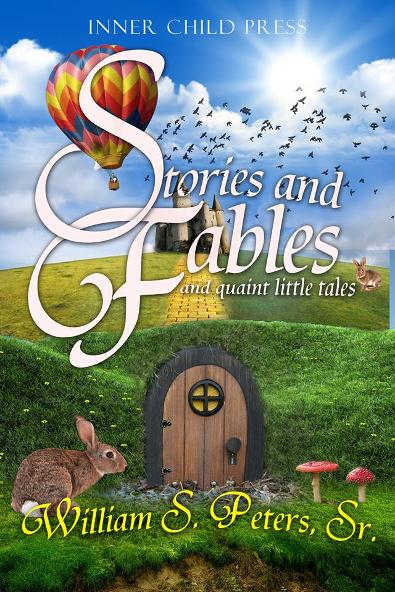
i Offered Thanks
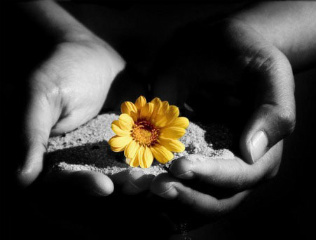
I awakened this morning, and i offered a prayer of gratitude to the Progenitor of my life, . . . my God.
There are many things to be thankful for. They can be found in the Good and that which is perceived as Evil, the Light and the Dark.
I offered thanks for all the Woe in my life, for through it i learned that i had the gift of Endurance and Temperance.
I offered thanks for all those who have left my life through Death, Moving Away, Growing Up and the ending of Relationships, for it has taught me to appreciate those who are in my life NOW, as well as how to truly cherish the memories of the blessings of their presence i once enjoyed.
I offered thanks for all the Dark Days ... yes, for the dark days brought to me an understanding of how i could truly employ, not only the light of those found in the not so dark days, but how to utilize to the best of my own abilities, and that small light of my own that resides within me.
I offered thanks for all the Anger i suffered through . . . that of my own and that of others. Through my anger i have come to know the true meaning of humility. This gift was imparted to me in being chastised and scolded by others, and in having to be the one who must later apologize for their errancies of character, attitude and expression.
I offered thanks for all the times when i was down on my luck. It was, and is those times i realize that luck and being down, was my own choosing, and that i had the power to alter my perspectives of how i viewed my life. Should i go forth with disdain for the hand that life has dealt me or should i cling to such powerful forces of hope and faith? These powers do have a transformative ability to change my energy to something magnificent and grand.
I offered thanks for all the Tears i have cried . . . for whatever reasons. Tears truly have a deep cleansing ability to alleviate my soul of the angst i have collected through many of life’s circumstances.
I offered thanks for all the “NOs” i have heard, given me by life when i so wanted to hear a “Yes”. Yes, in reflection, many times those “Yes’s” i wished for would have been detrimental to my higher good. I did not always understand this, nor did i care at that moment, for i was blinded by my own “Self Oriented” desires and my finite and limited perspectives on the whole of what may “Be” or “Become”. I have grown tremendously because of each and every one of those ”NOs” . . . and again i must say . . . I am Thankful.
As you read this, you may say to your self, to be thankful is a good thing . . .or not. But to be thankful, i have found to be personally empowering on so many “Life Levels”. It has added unto my abilities to make it through many other circumstances i could not have navigated early on in my life. It was all the setbacks that taught me how to garner my fortitude to press on. It is all those disappointments that taught me Tolerance, Acceptance and Patience. It has taught me some wonderful things about my own abilities.
This does not mean that i did not want things . . . i did, and i do! This does not mean i gave up on life . . . NO . . i live to the fullest i can . . .when i remember who i am and have the mind-set to do so. Simply put, through the Storms “Life” has so mercifully sent my way, i have come realize a greater expanse of my own abilities. I have come to know the meaning of peace found in the “Eye of the Storm”. I have discovered that i am so much more than i believed and so much more than what i have been Taught and Told . . . as are you!
The biggest and most profound aspect of my existence i have come to reckon with is that there is a Power we have . . . yes “WE”, that is connected to some force we have yet to fully comprehend. Most of us about this wonderful plane of existence identify this as God. Whether you are a believer or not, matters not much, for even Science cannot deny this immeasurable force that connects us all to a “One” reality, whether we identify it as Evolution or Creation. They are but words, as are these! But, what is real in this seemingly temporal existence of ours is what we feel. I pray that you take the time to ”feel” the goodness of who you are and teach and show others through your example as well to embrace, not just their possibilities of what they may become, but the grand aspects of what we already ARE . . . Right Now . . . Right Here !
Finally, I offered thanks for all the Love i have had in my life and that which still resides, which is “ALL LOVE”. The love that appears to have went away, left the Gift of Experience and thus a Lesson or two behind. And, funny thing, these lessons are still mine, the Lesson and the Love. The Love i have today . . . it is filled with possibilities of what it may become. Who can contain such energy with a closed hand or closed heart . . . . None !!!! Love seems to be that Universal Language that is now awakening and calling to all Souls to “Allow” the opening of our Heart’s Door . . . Do you hear the knocking ?
I have offered thanks this day for you. I Awakened this Morning . . .
Thank You
bill
World Healing ~ World Peace
Poetry ~ 2014
Dear Madam / Sir
We Believe In You ! ! !
This is the reason we are addressing this letter that speaks of our pleas to you on behalf of all of humanity. The purpose of this communication is to call for your assistance in the elevation of a conscious realization of World Peace ~ World Healing.
As you are well aware, Humanity faces many challenges across our globe with such things as War, Strife, Famine, Bias and much, much more. As you, who are a citizen of the “Community of Humanity” and a Leader and Spokesperson for the will and needs of we the World Citizenry we are forwarding our soulful ~ soul filled appeal for your help and compliance and service unto such.
As we watch the shifting continue and the void deepen between the various factions of who we are, becoming more globally prolific, we the people have no other alternative but to cry out to any and all, to you in hopes to awaken the empathy of all hearts to the immediate crisis that faces, and eventually will affect us all. The time for the “back room” “Political Jockeying’ and “Power Brokering” is nearing an end. The needs of the many, the all, are greater than the “Self Serving” desires and avarice of the few. The time has come for our collective and applied consciousness to be focused on resolution. We need your support to usher forth this righteousness that allows and feeds a parity amongst all segments of our Human Family.
We Need You !!!!!
We believe in YOU !!!!
Help Us Help Us ALL !!!!
Thank You
Inner Child
World Healing ~ World Peace Poetry 2014
www.worldhealingworldpeacepoetry.com
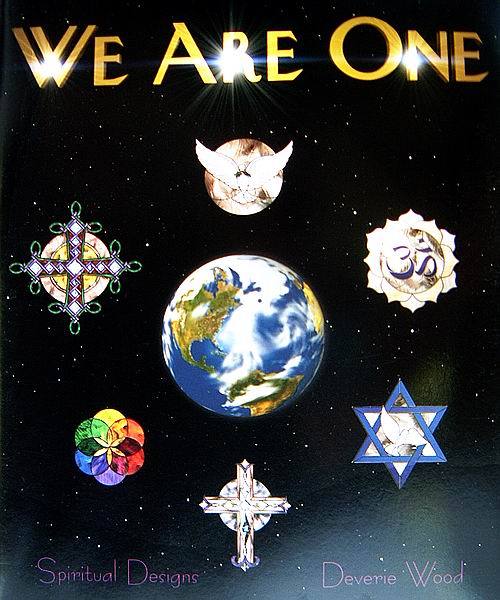

World Healing ~ World Peace
Claim your Official Sponsor's Badge
http://www.worldhealingworldpeacepoetry.com/sponsors.php


every little bit does help !
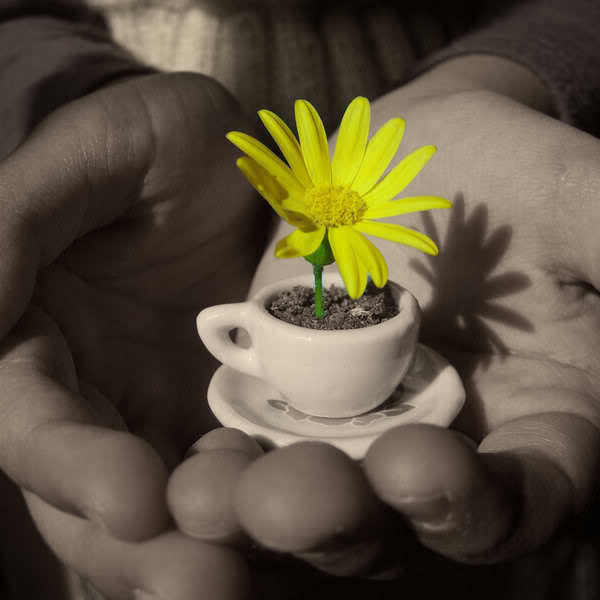
a few thoughts . . . .
Across the Lands, around the Globe, wherever we look, if we are paying attention it is readily understood the dire need for World Healing ~ World Peace. Our world is challenged across many fronts of our Humanity. The conditions we now endure and experience are calling for our evolution to become more Accepting, Loving and Cooperative as Human Beings. There are many ills and circumstances that seek to steal our power from us. These include Politics, Religion, Ethnics, Culture, Gender, Geography, Classism, War, Famine, Disease, Global Economics, Greed and many more.
We must also consider the condition of this Planet we inhabit and what we so negligently allow as far as the environmental situations. Our Waters are being poisoned, and the Earth is being pillaged and raped for Oils, Minerals and other Natural Resources. We are “Clear Cutting” our Woods and Rain Forests, Genetically manipulating of Food Supply thereby generating other Life altering crisis’s that will sooner or later have to be addressed. Mother’s Oceans and Streams are suffering tremendously as in our Air quality. All this helps perpetuate the dependency upon "Big Pharma" and other unnatural remedies to provide a pseudo-comfort so that we may pretend we are living a healthy life of Peace.
One may look upon the myriad of conditional challenges and easily embrace the attitude of hopelessness. Many are ! Or, we can mobilize ourselves in a collective and thereby come to realize that we are still powerful beings who are capable of manifesting what may appear as miracles to the non believer. I choose to be a believer . . . what about YOU ?
The Inner Child Family is firmly entrenched in its position to make a difference. The changes we vie to accomplish can only be achieved when we learn to work together on all fronts, to include all the aspects of the change we desire. Cooperation amongst the various factions of our Humanity is essential. Ultimately we are responsible for our individual and collective legacy, for those yet unborn will either have to endure what we leave behind or they will enjoy the fruits of our Soulful labors . . . but this is our CHOICE !!!!
Blessings
Bill
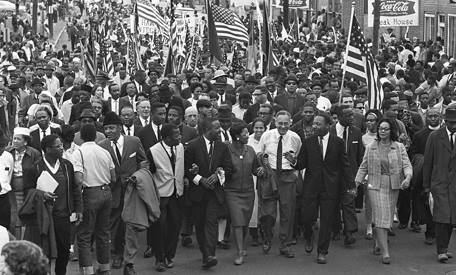
toward the Dream
We walked
We marched
We hoped
We listened
We prayed
the memories
the realities
the dreams we hold
the dreams we held
came together
in a Social Stew
of convolution
some voices heard
many not
but all were there
represented by the hearts of the love
of our Sisters and Brothers
there was Joy
there was Sunshine
there was Love
and we embraced
upon the shared path
the coalition of colors
came together
and we are the Rainbow
this day
there was Promise
in that 50 Year Old Dream
and it still lives
the seeds were planted
in life’s holy garden
by the weary, needy hope filled
hands
who ardently pressed forward
toward the tomorrows
of their children
our Ancestors
We marched
We smiled with each other
We embraced
in a common love
in a knowing Spirit
that knows of deliverance
We sung songs of remembrance
for King,
for Till,
for Evers,
for Martin,
for “X”
and for you
and all the children
who are pleading
for resolution
where our eternal Souls
dance to the tunes
of this reality
we fully expect
a losing of the suffering
we endure
you endure
all endure
and it shall come
for we march
towards the Dream.
© 26 August 2013 : william s. peters, sr.
World Healing, World
Peace Poetry 2014
www.worldhealingworldpeacepoetry.com
http://www.gofundme.com/3gvqks
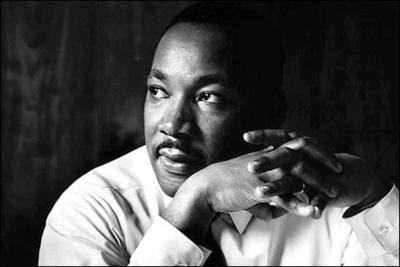
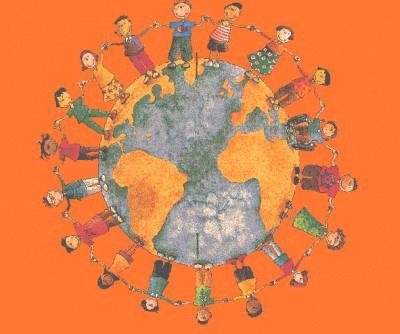
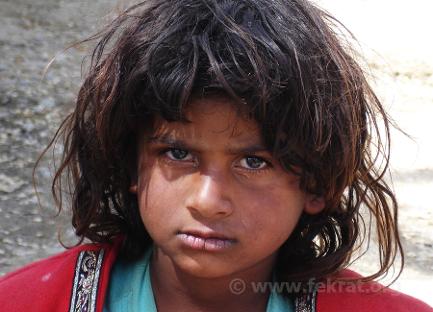
my Sun is Orange
my morning Sun is orange
The yellow is stained
with the Blood of my People
for that is what we
are reminded of
each day
when it rises from the East
to greet the world
i see my world
clearly
we once lived with a hope
that the atrocities of Hate
War
and indifference
would go away
but it did not
my hope has been misplaced
somewhere
and i can not remember
where i have set it down
it might have been that day
i lost my arm
or that day
when my Father was jailed
or that day
when my Sister was killed
she was only 3
no, i think i lost my hope
the day
my Mother no longer cried
her eyes have been dry
for many a year now
and somehow
by some grace
she still has enough love in her
to hug me
once in a while
through that pained smile
that still adorns her face
just so she won’t completely break
there is a noise i hear
it is a loud silence
that stays with me
through my callousness
for the gunfire
and the bombs
and the screams
i can not hear them
they have long ago
assaulted and killed
the dreams of my Family
my village
my people
and it is now working on
Humanity
where is the sanity
in this methodology
to be found
every day is “Ground Zero”
where i live
every where i look
i see Ground Zeros
and we have lost count
of those who
are no more
because of what you call War
but you and i
never had a dispute
that i know of
If so, please tell me what i did wrong
to cause you harm
that you should exact such wretchedness
upon me
and others like me
i know not of the Politics
of it all.
i have never met a Politician
are they so different
than we the people ?
if it’s Oil
i give it to you
if it’s right
take it freely
i will not raise nor put my hand
against that
of my Father’s children
there was a time
when all i thought of
was simply
finding Joy in my life
i have since given up that quest
for i see far too much
of that other stuff
which deserves not a name
my Sun is no longer Yellow
but i do pray my Brother
that yours is
my Sun is Orange
This is dedicated to all the Villages, Peoples across our Globe who must endure the Politics and Sickness of War.
© 1 July 2013 : william s. peters, sr.
Greetings Family,
Inner Child Enterprises, ltd. through Inner Child Press has began the Campaign for World Healing World Peace through Poetry once again. This occasion instead of formulating the effort as a contest, we have chosen to take a different route.
As we make the plea to the Poets of the World to contribute their work, our objective this time around is to get the copies of the offering into every Member Nation's hand of The United Nations (193 - 200 members) as well as every Voting Member of the United States Congress (535). These two bodies of Policy and Legislature are perhaps the two most Publicly seen bodies of power. We at Inner Child believe the cause that asserts World Healing and World Peace is a noble and worthy one indeed that not only affects those who are currently inhabiting this wonderful world of ours, but those that are yet unborne.
Our first effort in 2011 - 2012 produced a wonderful and powerful consciousness Globally which brought people together. As the contributors expressed their concerns, hope, consciousness and love through Poetry, we discovered each other. These types of works bring people together as opposed furthering the divide of our Humanity.
We have
established a Dedicated Web Site to facilitate the effort.
World Healing World Peace Poetry
We have also established a Fund to help make this vision come to be. Contribute to World Healing, World Peace Poetry
We are very succinctly aware of the Global Economic challenges we all face in some form or another, so we humbly ask that if you are not in a position to assist economically, that you help the effort and help us all by paying forward the information. It is time to stop the madness of our inhumanity, don't you think. This effort is but 1 of the many ways we can make a difference.
To reiterate, our Goal is to raise $8,000.00 for assist in the Production, Printing and Distribution of the finished product. At this time we do not know whether the offering will cover all expenses. If we are as successful as we were with the first effort, we are looking to ship somewhere between 935 books if it is a one book production and as many as 1800+ books if we duplicate our past. Should we exceed our expectations we will continue to push forward and pray for Miracles . . . and they do happen every day.
For those who choose to contribute their Poetic Offerings please go to the Web Site for Submission Guidelines. We will be taking submissions from September 1st, 2013 through December 31st, 2013 with the Book being Published for Global Poetry Month in April of 2014. Entrants will provide a Picture of themselves; a Bio of 50 words or less; Links to their private Blog, Web Sites, etc and their Poetry. The Books will be available World Wide for a Free E Download upon completion. Make your mark in history and let your words be noted.
We are not soliciting anything here but your Blessings and your Love for the Good of Us all.
Thank You for your time.
William S. Peters, Sr.
'just bill'
Inner Child Enterprises, ltd.
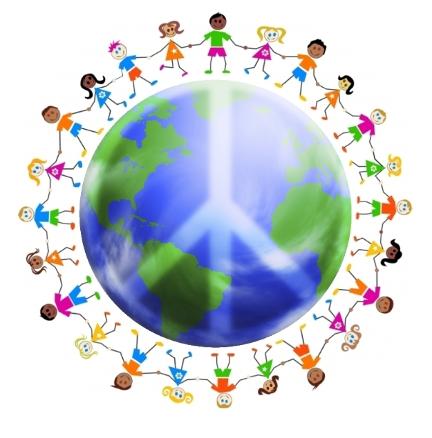
Shadowtrain Southwest Rez Roadtrip
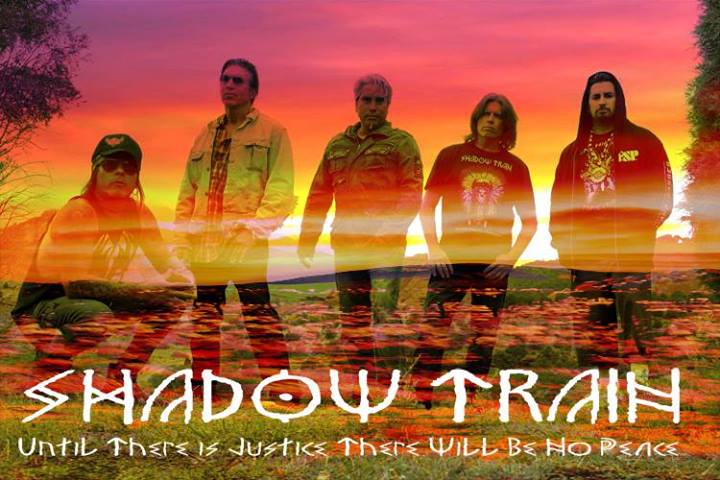
Traveling through a few places across the Southwest and observing some of the 3rd world conditions the people who originally occupied this land have to deal with was a paradigm shift for me. If they wish to lose their culture and assimilate, they lose all sense of their roots.
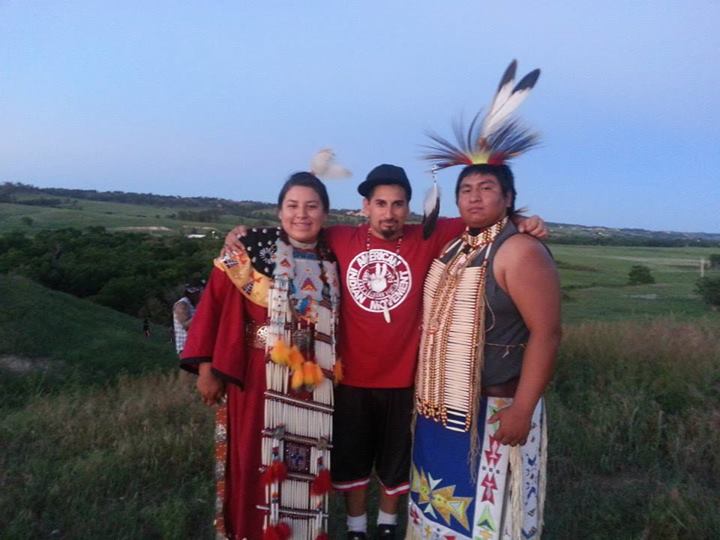
Native Americans have the highest teen suicide rate, lowest life expectancy, highest percentage of alcoholism and drug use, highest infant mortality rate, and highest percentage of diabetes of ANY demographic in the US. They are a forgotten people because their connection to each other and respect of land has either been raped out of them by instituting capitalistic material valuing mentality or by physically destroying them. No they do not have all the answers but their connection to the earth and its resources is something the new Americans (millions of immigrants from all over the world) can learn from.
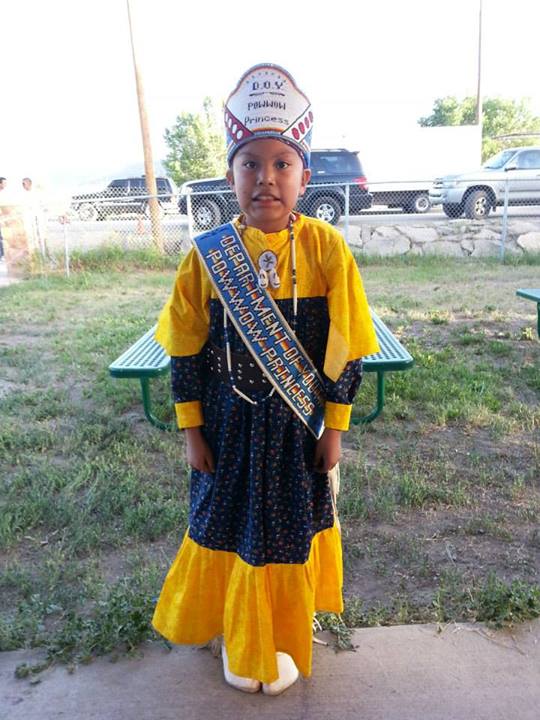
The decimation of these people and their way of life was the BASIS of what we know as America today. Then the America we know was later built by slave exploitation. These children are forgotten casualties and are living an American nightmare. People are up in arms when the federal govt doesn't obey the constitution or hold up its word when it pertains to them but to the natives of America, the true American citizens, they have never known a US govt that kept its word.

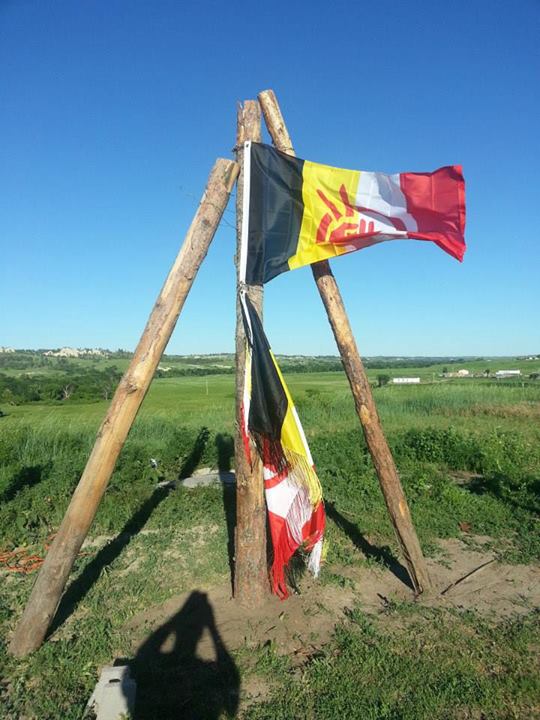
That is part of why we did this, to inspire, spread a message of justice, document, learn, bring the gift of music and spend some fraction of our time on this planet doing what seems like a novelty to those who donate money simply for a write off, we donated our time to physically be there to HELP.

I am honored to have been given this opportunity because many people would like to help but can't get away. If one note I played this trip could inspire a kid to learn a bass-line as opposed to drinking a beer and forgetting his culture, I am fulfilled.
By: Gabe Rosales ( Rez = Reservation )
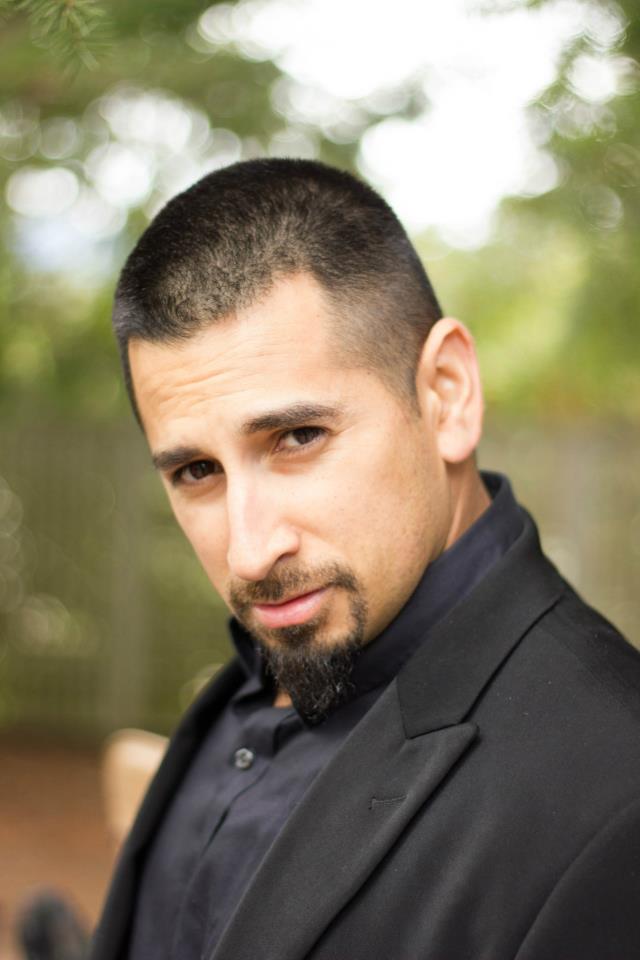
Gabe Rosales is a accomplished
Musician and Artist, Humanitarian, Activist, Filmmaker and so much more.
To learn more about the Gabe Rosales movement visit :
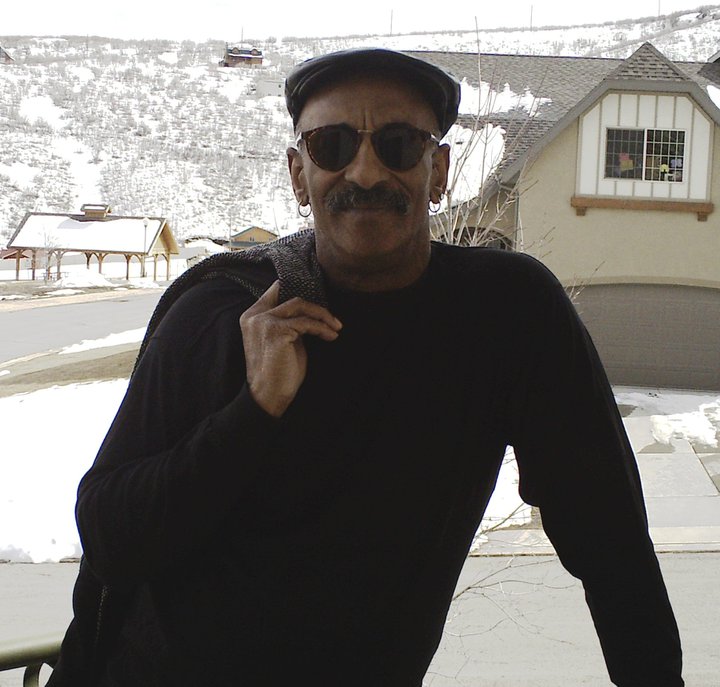



10 The Color of Vowels.mp3

i Believe . . a few things
i Believe . . .
that the world is purposefully designed and constructed to challenge us that we may re-discover in this life time who we are capable of being and thus finally become eternally resolute within the acknowledgement that we are Beautiful, Powerful and Divine . . . we are God manifest
i Believe . . .
we live in a world whose need is to challenge our God / Cosmic Consciousness that we may ascend back to our very natural state of being, and when enough of us re-mate our selves to this collective mind it will spawn a shift that will encompass all of our empirical expression and we will move from the 3rd to the 5th effortlessly as it is written. It is inevitable. The sand of this desolate shore upon which we stand is washing from beneath our feet as i speak. The tides of a not too distant consciousness is rising and washing up upon the beaches we now inhabit.
i Believe . . .
that world of our Forefathers, that of “Institution” does appear to have failed us. We watch as the ages of Indoctrination, Dogma, Pragmatism, Rite and Rote begin to shimmer in the ether of what is valid. Yes, they are but appearances, an illusion within the construct of our dichotomous expression. We being embedded with a “Source Seed”, a Breath of that which is absolute can not fail Truth. Yes, these “Teachings” of the empiricy only served to stimulate our awakening and understanding of that which resides in the breasts of all men . . . that longing for “Absolution”.
i Believe . . .
that i / we as humans do and have spent far too much valuable “Time” in our lives engaged in meaningless dialogue and discussion attempting to quantify and define Creation’s “OMNI” characteristics such as Source, God and Love. Like an Ant in attempts to describe the Mountain, it is not that we are completely incapable of doing so, however, truth is one must ask to what end. We like the Ant can mark our trail and communicate to others the treasures we have discovered in our journey that the whole of the colony may feed. Perhaps we should let go of our arrogant high mindedness and allow the experience of Source / God and Love to define us and the way we should go. What Ant says to another . . .”I have found a Mountain, let us go and make it unto our image”?
i Believe . . .
i am the Creator of how i see my life. I either allow my perspectives to be modeled by that which appears as “Dark”, or that which appears as “Light”. Most of us vacillate betwixt the two. There is also another consciousness that is beyond and supersedes our “dualistic idioms, for we all do know that ultimately life is littered with deception. Duality exists within the Singular and it, Duality can never dictate it’s, “The Singular” complete essence. Within the Singular exists all that ever was and all that can and will ever “BE”. I see my “Self” as One with all things and when i reside in this consciousness. I am not moved by that which is transient, temporal or that which we create for our delusional amusement within the confines of our experiential-ness.
i Believe . . .
that what i believe is the seed that i have planted deep within the soils of my convictions. Some day i will witness the Budding, Blossoming and subsequent Fruits of my labor. I also believe that “mindfulness” of what we are planting in our Holy Garden, our “Eden” is essential. There is a “Good Ground” and there is an “Other”! Plant a good seed; nurture it with your Love and Compassion; Water it with the sweat of your brow. Additionally, let us not forget from time to time, to extract the weeds from these Dreams which left unattended will proliferate and choke life from what was once a fruit bearing promise. Prune your Dreams “In Season”. This is a very Spiritual undertaking that speaks to those forces who would bring forth your vision into your “reality”. Be a diligent Gardener of your Life and your Heart and your yield will be abundant and never ending.
These are but a few of the things that i believe, but there is One thing i do “KNOW” . . . and that is that “I” am capable of more than what my little ‘i’ can fathom, for “’i am’ Love . . . ‘i am’ Source . . . ‘i am’ God manifest, for as is that which spawned me, so “I AM” !
a ‘just bill’ joint . . .
inner child
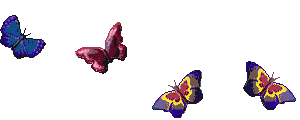
M. B. O.
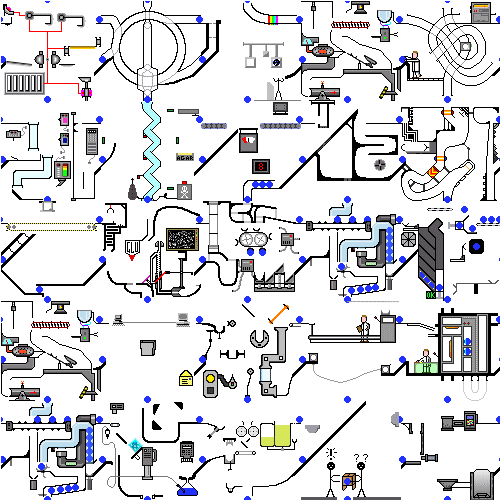
My friends . . . this is an acronym . . . of course it is!
I am taking this time to share with you something I have learned from “Corporate America” . . . MBO =’ Management By Objective.
As well prepare to cross over into a New Year, many of us are making Plans, setting Goals and establishing our Objectives. Now when we first sit and reflect and ponder where we are and where we would like to be or go, those thoughts are based in Hope. There is nothing wrong with Hope, for it is the seed that must be planted that we may bear . . .something! It, Hope is but the start! Hope alone will not draw you closer to any thing except misery unless it is followed by belief and actions.
Now for the sake of clarity, this is not to be a Religious writing, but one of Practical Applications !
So, let us now prepare for the journey. 1st, let us thoroughly examine what they are within and without our self. What is it that you wish to accomplish? Is it realistic? Do you have any ideas as to where you will begin your quest? What things do you need to assist you in your aspirations? These are just some basic aspects one should consider. Be careful not to over complicate your goals for that can also lead to confusions, vexations and thus nowhere but a new lesson . . . provided you kept your eyes open and took notes.
Now, let us prepare . . .
I have constructed a short list that should be helpful . . .
1 Establish your Goal
2 Visualize the end result
3 Establish your route of travel
4 Visualize the end result
5 Make a packing List for your Journey
6 Visualize the end result
7 Make amends with your past
8 Visualize the end result
9 Make all your acquaintances aware of your intentions
10 Visualize the end result
11 Start
12 Visualize the end result
13 Enjoy
14 Visualize the end result
The most important aspect of your Goal is to always Visualize the end result!
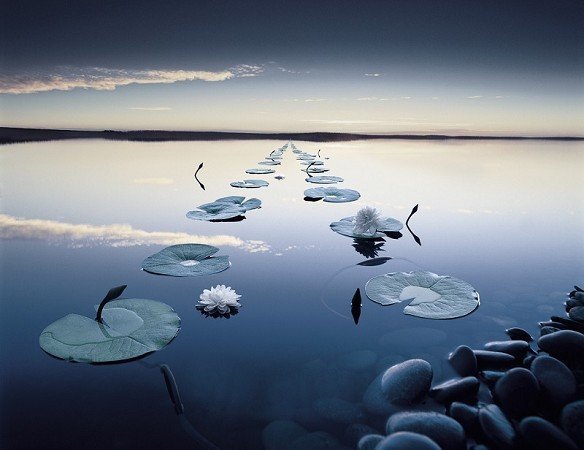
Now I don’t wish to be a downer, but I must say this:
Not all of us will accomplish that which we set out to do, or that which we thought we set out to do !
Some of us will Utterly Fail . . . so we think . . . but take Notes and Learn
Some of Us will get Distracted . . . either by something more appealing or our inner self will and fortitudes or voices.
Some of us will just plain forget what we are to be doing . . . Take Notes
Some of us will get closer and we will have achieved something worthwhile . . . do not beat yourself up about falling short . . . we all do in some way !
Some of Us will Achieve our Goals . . . but we all pay a price . . . don’t we? Some Prices might be at the loss of something dear to us like Family, Loved Ones, Friends and Personal Integrity
Some of us will Discover and Encounter new individuals who will share with us and we too can share our selves with them!
Some of us will Discover and Learn much that we can pass on and carry forward for the next Quest.
Some of us will Discover and Learn Invaluable lessons about ourselves.
Some of us will Over Achieve!
All of us will Over Achieve if we take notes and Learn ! . . . we will have Discovered something !
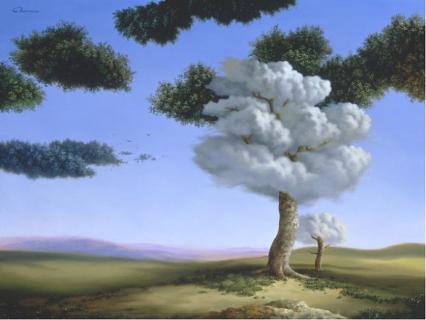
So, in summing up this little Oratory of life as I see it, I must say this . . .
The most important things in your journey is but this ...

Dream
Visualize
Believe
Keep a focused Attitude and Heart
“BE” There
Discover
Learn
Assist Yourself By assisting Others
Take Notes
So, finally, I wish you all well, and when your return . . . bring us all back some treasures and pleasures of your experiences.
Love you all
~ bill ~
i Offered Thanks
I awakened this morning, and i offered a prayer of gratitude to the Progenitor of my life, . . . my God.
There are many things to be thankful for. They can be found in the Good and that which is perceived as Evil, the Light and the Dark.
I offered thanks for all the Woe in my life, for through it i learned that i had the gift of Endurance and Temperance.
I offered thanks for all those who have left my life through Death, Moving Away, Growing Up and the ending of Relationships, for it has taught me to appreciate those who are in my life NOW, as well as how to truly cherish the memories of the blessings of their presence i once enjoyed.
I offered thanks for all the Dark Days ... yes, for the dark days brought to me an understanding of how i could truly employ, not only the light of those found in the not so dark days, but how to utilize to the best of my own abilities, and that small light of my own that resides within me.
I offered thanks for all the Anger i suffered through . . . that of my own and that of others. Through my anger i have come to know the true meaning of humility. This gift was imparted to me in being chastised and scolded by others, and in having to be the one who must later apologize for their errancies of character, attitude and expression.
I offered thanks for all the times when i was down on my luck. It was, and is those times i realize that luck and being down, was my own choosing, and that i had the power to alter my perspectives of how i viewed my life. Should i go forth with disdain for the hand that life has dealt me or should i cling to such powerful forces of hope and faith? These powers do have a transformative ability to change my energy to something magnificent and grand.
I offered thanks for all the Tears i have cried . . . for whatever reasons. Tears truly have a deep cleansing ability to alleviate my soul of the angst i have collected through many of life’s circumstances.
I offered thanks for all the “NOs” i have heard, given me by life when i so wanted to hear a “Yes”. Yes, in reflection, many times those “Yes’s” i wished for would have been detrimental to my higher good. I did not always understand this, nor did i care at that moment, for i was blinded by my own “Self Oriented” desires and my finite and limited perspectives on the whole of what may “Be” or “Become”. I have grown tremendously because of each and every one of those ”NOs” . . . and again i must say . . . I am Thankful.
As
you read this, you may say to your self, to be thankful is a good thing . . .or
not. But to be thankful, i have found to be personally empowering on so many
“Life Levels”. It has added unto my abilities to make it through many other circumstances
i could not have navigated early on in my life. It was all the setbacks that taught
me how to garner my fortitude to press on. It is all those disappointments that
taught me Tolerance, Acceptance and Patience. It has taught me some wonderful things
about my own abilities.
This does not mean that i did not want things . . . i did, and i do! This does not mean i gave up on life . . . NO . . i live to the fullest i can . . .when i remember who i am and have the mind-set to do so. Simply put, through the Storms “Life” has so mercifully sent my way, i have come realize a greater expanse of my own abilities. I have come to know the meaning of peace found in the “Eye of the Storm”. I have discovered that i am so much more than i believed and so much more than what i have been Taught and Told . . . as are you!
The biggest and most profound aspect of my existence i have come to reckon with is that there is a Power we have . . . yes “WE”, that is connected to some force we have yet to fully comprehend. Most of us about this wonderful plane of existence identify this as God. Whether you are a believer or not, matters not much, for even Science cannot deny this immeasurable force that connects us all to a “One” reality, whether we identify it as Evolution or Creation. They are but words, as are these! But, what is real in this seemingly temporal existence of ours is what we feel. I pray that you take the time to ”feel” the goodness of who you are and teach and show others through your example as well to embrace, not just their possibilities of what they may become, but the grand aspects of what we already ARE . . . Right Now . . . Right Here !
Finally, I offered thanks for all the Love i have had in my life and that which still resides, which is “ALL LOVE”. The love that appears to have went away, left the Gift of Experience and thus a Lesson or two behind. And, funny thing, these lessons are still mine, the Lesson and the Love. The Love i have today . . . it is filled with possibilities of what it may become. Who can contain such energy with a closed hand or closed heart . . . . None !!!! Love seems to be that Universal Language that is now awakening and calling to all Souls to “Allow” the opening of our Heart’s Door . . . Do you hear the knocking ?
I have offered thanks this day for you. I Awakened this Morning . . .
Thank You
bill

For more information on becoming a Sponsor or Advertising with us at Inner Child Magazine
click HERE
